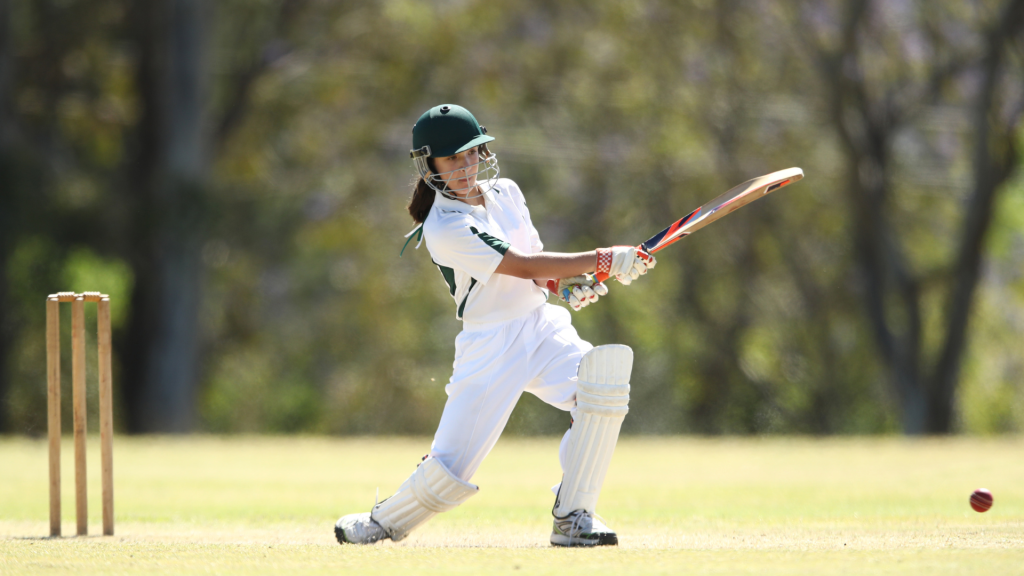
Women in Sport’s response to the McKinney Report into the misogynistic culture of Cricket Scotland
Published
Women in Sport response to the McKinney Report into the culture of Cricket Scotland
Women in Sport has been working for forty years to give women equal space in sport. Opportunities have been opened up in that time, not least in teamsport, but cultural change has been very slow. We are therefore pleased that this report was commissioned and commend all those who gave evidence, as without their testimony, there would be less opportunity to drive change.
The many examples cited in the report of women being bullied and intimidated and the women’s game being demeaned and undervalued combine to make a powerful argument for change. The indignities faced by female cricketers are upsetting and unacceptable – such as training in bin bags to simulate heat training, while the men have dedicated high-tech units, or having to wear kits that don’t fit. Female athletes deserve equal access to the facilities, equipment and standards of care as their male counterparts.
Why sport matters
The value of sport – and particularly team sport – in developing resilience, courage, self-belief and belonging cannot be overstated. Team sport can give women and girls experience of leadership and joint endeavour and through it they can find a love for and sense of joy in sport. There is little doubt that sport can help counter the pandemic of anxiety, self-harm and eating disorders that plague teenage girls’ lives and other gendered health inequalities such as the disproportionate prevalence of osteoporosis and auto immune diseases amongst women later in life.
History
The exclusion, until recently, of women and girls from three of our biggest team sports: cricket, football and rugby represents a deep injustice. It was made clear to generations of women that these games weren’t for them. So it is not surprising, but it is very disappointing, that now the doors have opened the experience of the women and girls in Scottish cricket is so poor.
The report’s conclusion that those responsible for running cricket in Scotland, at all levels, have been far too slow to recognise the value and importance of the women’s game is hard to criticise. The report provides the opportunity for this to change – and we are heartened to see that some progress has already been made by Cricket Scotland. The new leadership at the governing body recognises that there is much more to do.
Women in leadership
It will be impossible to truly transform the game without tackling the deeply rooted culture and misogyny that keep women from progressing to leadership positions in sport. We need 50% of senior leadership roles and 50% of decision-making roles throughout the committee structure filled by women. As we work towards that position, there needs to be understanding of the impact of gender stereotyping on recruitment decisions and for the culture to be positive for those women who do enter the system. This will not be possible without support from male allies, especially those at the top of the sport who must lead by listening and learning about the assumptions they are making and the best way to secure female applicants and appointments.
Tackling misogyny
Misogyny is prejudice, malice and/or contempt for women… attitudes and behaviours that relegate women to a subordinate position and maintain the power imbalance which characterises male/female relations. It is these attitudes – and the conduct which flows from them – which prevent us achieving genuine equality.
The report makes clear that there is a pressing need to tackle a deep-rooted misogyny in Scottish cricket. This is by no means an issue that is unique to this setting: sport as a whole must do more to tackle misogyny. This starts by understanding what misogyny looks like in society today. Its expression is not limited to the direct origin of the word (Greek: hatred of women) but goes beyond this as the definition above, from legal scholar Helena Kennedy KC, makes clear. We must begin to embed a better understanding of misogyny in sport, and by introducing Anti-Misogyny policies in organisations. Only then will we be able to truly tackle it. You can find more about Women in Sport’s work on anti-misogyny in sport here.
Sport belongs to us all
As well as recognising the reality of misogyny, real cultural change will only be achieved when society stops limiting girls’ lives with unsporty stereotypes while piling expectations on young boys which tells them that to be masculine they must be good at sport, strong and dominant. Our research has shown that these gender stereotypes are pervasive and boys as young as five have already learnt that girls don’t belong in sport. We have to smash these stereotypes. We have to change the narrative and make sport a shared space where both boys and girls, men and women are welcome, valued and included. We need to create a generation of boys to be mini allies.
We want boys, and the men they will become, to be agents of change for girls and women in sport, and in life. Our girls’ futures depend on it.
Conclusion
In common with so many other sports, Scottish Cricket now has an opportunity to transform and become truly appealing and welcoming to women and girls at all levels of the game. We stand ready to support the Cricket Scotland to achieve greater gender equality in the game. But to ensure true and long-lasting change is created everyone involved in the sport – clubs, sponsors, media – must all play their part.

